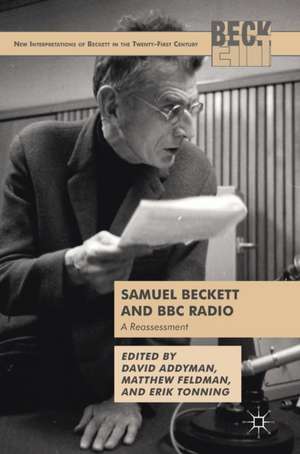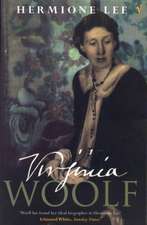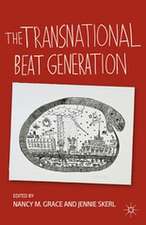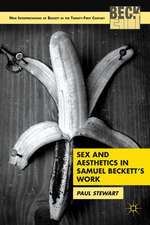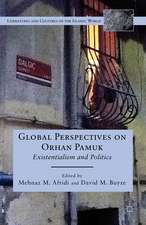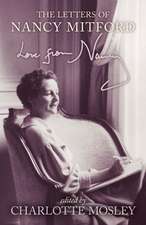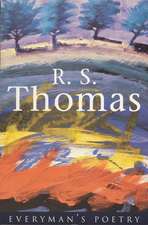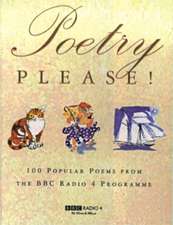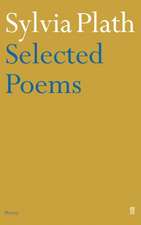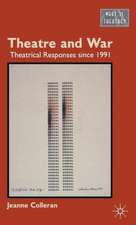Samuel Beckett and BBC Radio: A Reassessment: New Interpretations of Beckett in the Twenty-First Century
Editat de David Addyman, Matthew Feldman, Erik Tonningen Limba Engleză Hardback – 31 mar 2017
| Toate formatele și edițiile | Preț | Express |
|---|---|---|
| Paperback (1) | 582.95 lei 6-8 săpt. | |
| Palgrave Macmillan US – 8 mai 2018 | 582.95 lei 6-8 săpt. | |
| Hardback (1) | 588.37 lei 6-8 săpt. | |
| Palgrave Macmillan US – 31 mar 2017 | 588.37 lei 6-8 săpt. |
Preț: 588.37 lei
Preț vechi: 692.19 lei
-15% Nou
Puncte Express: 883
Preț estimativ în valută:
112.60€ • 116.66$ • 93.97£
112.60€ • 116.66$ • 93.97£
Carte tipărită la comandă
Livrare economică 21 martie-04 aprilie
Preluare comenzi: 021 569.72.76
Specificații
ISBN-13: 9781349951307
ISBN-10: 1349951307
Pagini: 262
Ilustrații: XV, 308 p.
Dimensiuni: 148 x 210 x 24 mm
Greutate: 0.54 kg
Ediția:1st ed. 2017
Editura: Palgrave Macmillan US
Colecția Palgrave Macmillan
Seria New Interpretations of Beckett in the Twenty-First Century
Locul publicării:New York, United States
ISBN-10: 1349951307
Pagini: 262
Ilustrații: XV, 308 p.
Dimensiuni: 148 x 210 x 24 mm
Greutate: 0.54 kg
Ediția:1st ed. 2017
Editura: Palgrave Macmillan US
Colecția Palgrave Macmillan
Seria New Interpretations of Beckett in the Twenty-First Century
Locul publicării:New York, United States
Cuprins
1. Introduction: David Addyman, Matthew Feldman and Erik Tonning.- 2. Matthew Feldman, "Beckett’s ‘non-canonical’ radio productions, 1957-1989".- 3. Erik Tonning, “Mediating Modernism: The Third Programme, Samuel Beckett, and Mass Communication".- 4. Dirk van Hulle, “The BBC and Beckett’s Non-Radiogenic Plays in the 1950s".- 5. Pim Verhulst, “The BBC as ‘Commissioner’ of Beckett’s Radio Plays".- 6. Catherine Laws, "Imagining Radio Sound: Interference and Collaboration in the BBC Radio Production of Beckett’s All That Fall".- 7. Stefano Rosignoli, “Author, Work and Trade: The Sociology of Samuel Beckett’s Texts in the Years of the Broadcasts for BBC Radio (1957-89). Copyright and Moral Rights".- 8. John Pilling, “Changing My Tune: Beckett and the BBC Third Programme (1957-1960)".- 9. Elsa Baroghel, “‘my God to have to murmur that’: Comment C’est/How It Is and the issue of performance".- 10. Paul Stewart, “Fitting the Prose to Radio: The Case of ‘Lessness’".- 11. Melissa Chia, “‘My comforts! Be friends!’: Words, Music and Beckett’s Poetry on the Third".- 12. Steven Matthews, “Meditations and Monologues: Beckett’s mid-late prose on the radio".- 13. Natalie Leeder, “‘None but the simplest words’: Beckett’s listeners”.
Recenzii
“This book explicitly sets out to reassess the complex and changing relationship between Beckett and BBC Radio – and it does that very well indeed. All in all, then, this volume does full justice to its intricate subject matter by dint of the vast array of different approaches and viewpoints it brings together.” (Pedro Querido, Journal of Beckett Studies, Vol. 27 (1), April, 2018)
“The value of the book is largely attributable to the rigor and insight that the contributors have brought to that vast array of (non-digitized) material. … this is a book for specialists and, as such, is destined to become the go-to source for empirical information about the nature and extent of Beckett’s work with the BBC … . Overall, this is a fine book” (Seán Kennedy, James Joyce Literary Supplement, Vol. 32 (01), 2018)
Notă biografică
David Addyman is Peder Sather Research Fellow at the University of Bergen, Norway. He has published a number of articles and chapters on Beckett.
Matthew Feldman is Professor in the Modern History of Ideas at Teesside University, UK. He has published widely on Beckett, including Beckett’s Books and the collection of essays Falsifying Beckett.
Erik Tonning is Professor of British Literature and Culture at the University of Bergen, Norway. His publications include Samuel Beckett’s Abstract Drama and Modernism and Christianity.
Matthew Feldman is Professor in the Modern History of Ideas at Teesside University, UK. He has published widely on Beckett, including Beckett’s Books and the collection of essays Falsifying Beckett.
Erik Tonning is Professor of British Literature and Culture at the University of Bergen, Norway. His publications include Samuel Beckett’s Abstract Drama and Modernism and Christianity.
Textul de pe ultima copertă
This book is the first sustained examination of Samuel Beckett’s pivotal engagements with post-war BBC radio. The BBC acted as a key interpreter and promoter of Beckett’s work during this crucial period of his "getting known" in the Anglophone world in the 1950s and 1960s, especially through the culturally ambitious Third Programme, but also by the intermediary of the house magazine, The Listener. The BBC ensured a sizeable but also informed reception for Beckett’s radio plays and various “adaptations” (including his stage plays, prose, and even poetry); the audience that Beckett's works reached by radio almost certainly exceeded in size his readership or theatre audiences at the time. In rethinking several key aspects of his relationship with the BBC, a mix of new and familiar Beckett critics take as their starting point the previously neglected BBC radio archives held at the Written Archive Centre in Caversham, Berkshire. The results of this extended reassessment are timely and, in many cases, quite surprising for readers of Beckett and for scholars of radio, “late modernism,” and post-war British culture more broadly.
Caracteristici
Offers a comprehensive and sweeping examination of Beckett’s relationship with BBC, including his radio plays and various “adaptations” of stage plays, prose, and poetry Connects discussions of Beckett and the BBC to larger contexts about the changing role of radio and post-war British culture more generally Brings renewed attention to Beckett’s radio plays particularly the neglected BBC radio archives
